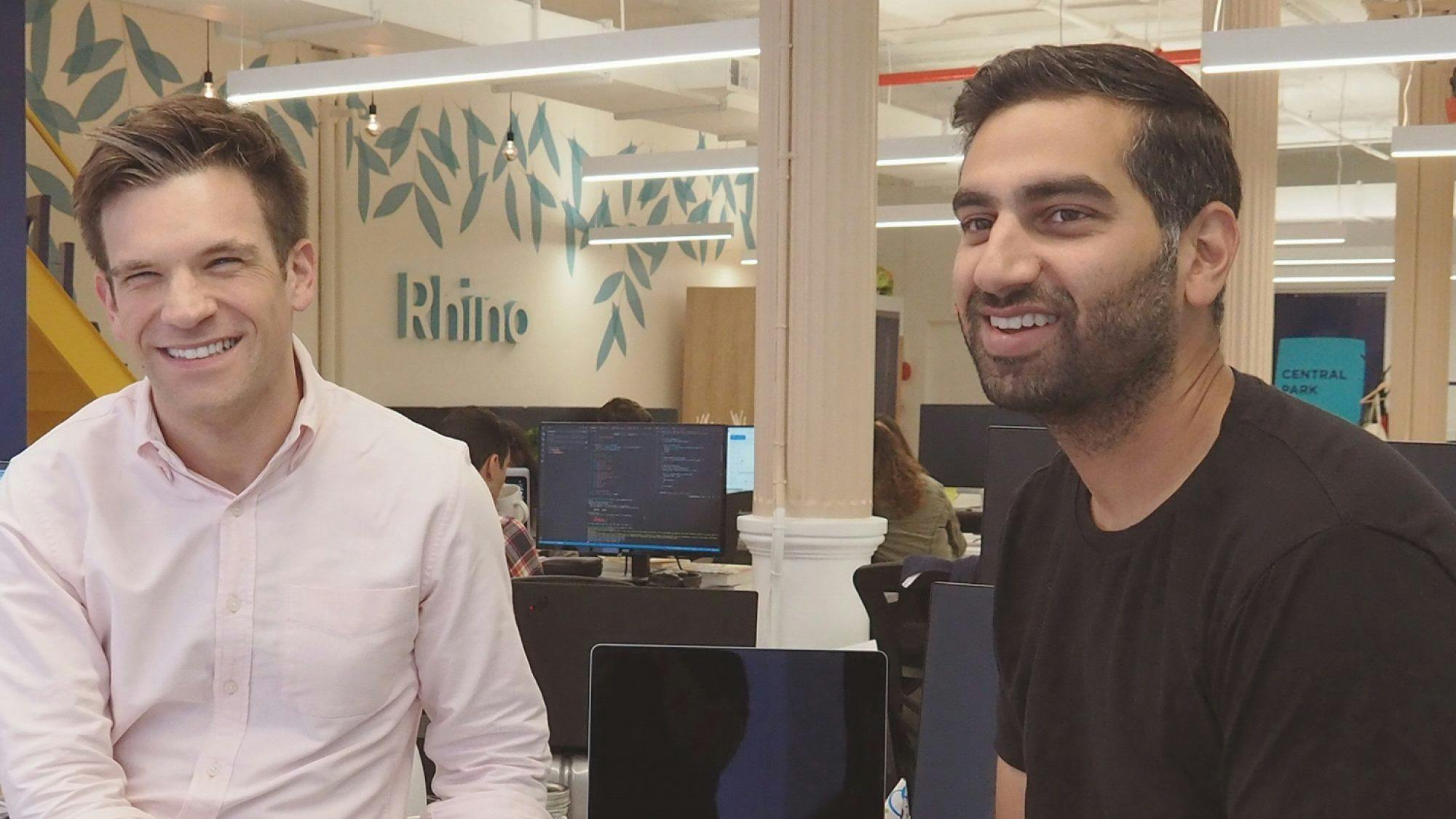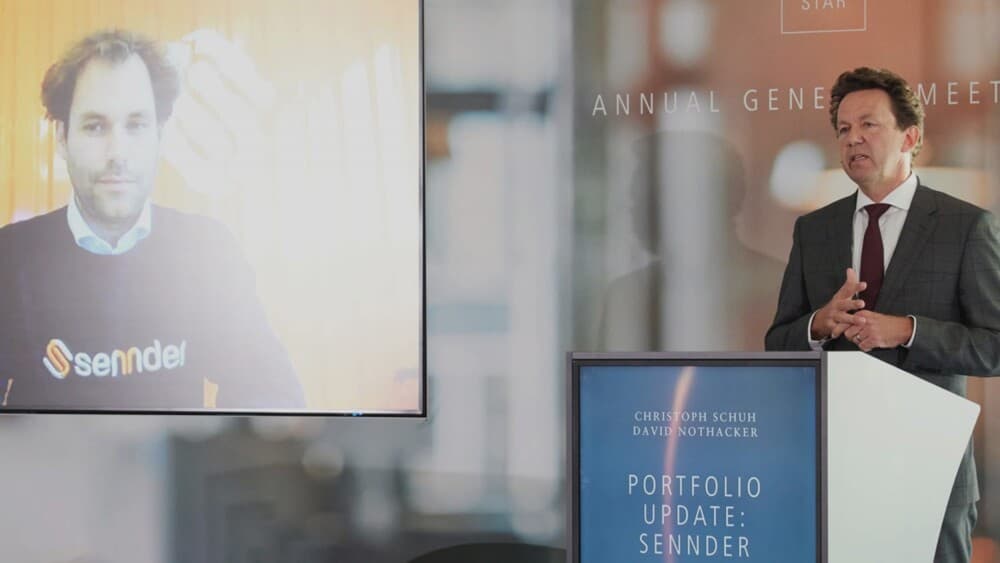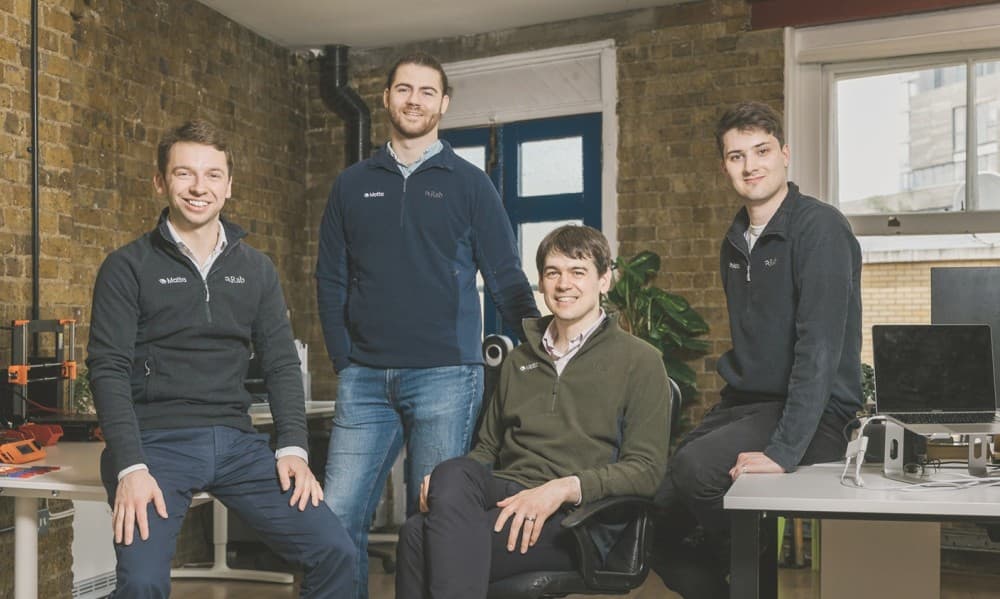Founders' Stories|Insights|
Solving the security deposit problem
Rentership is reaching levels never before seen in the US. Alongside global trends like the flight to cities, the escalation of rental prices and wage stagnation, renters and landlords are in dire need of innovative solutions. Our portfolio company Rhino is tackling the housing affordability crisis by replacing cash security deposits with smart, affordable insurance so that 110 million American renters can maintain control of their cash. Paraag Sarva, co-founder and CEO at Rhino, describes how he saw a need in New York’s real estate market for security deposit insurance which he now hopes to roll out globally.
PARAAG SARVA, CEO AND CO-FOUNDER OF RHINO
What led you to set up Rhino?
My business today, Rhino, draws on every bit of my experience of work over the last 15 years. I grew up in New York City and graduated from NYU. When I started working in financial services at Goldman Sachs I met Ben Lantos, one of the co-founders of Rhino and now our Chief Financial Officer. I left Goldman after two years as I wasn’t attracted to the day-to-day client advisory work and the transactional nature of what we were doing and went to work for Mike Bloomberg who was Mayor of New York. There I got to see a vast cross-section of how government works and how the private sector interacts with it. I was a policy advisor and responsible for key projects and initiatives – typically interagency things that dealt with police, fire, transportation, sanitation, environment. One of the projects I worked on was a multibillion dollar capital plan to change the way waste and recyclables were moved out of New York City. Historically was done through 16-wheeler trucks that drove municipal trash through tunnels for hundreds of miles to be dumped in landfills. It’s a terrible way to do that in terms of environmental responsibility, so we moved to transport trash to a barge and rail-based infrastructure across New York City. I enjoyed seeing the fruits of my labour, and the impact that made in the city and the people around me.
I then went on to start-ups. Entrepreneurship is part of my family story; I have two older brothers who are both strong entrepreneurs and my father moved here from India in 1972 and soon became a small and medium-sized business owner. He continues to be a very driven entrepreneur almost 50 years later. I cut my teeth in the venture-backed start-up community in New York as well as managing a multi-family real estate portfolio. Being a landlord in New York was a specific driver for how I emerged to build solutions for renters.
Where did the idea come from and what does Rhino do?
The idea for Rhino was born out of seeing this issue unfold day to day. In the US, rentership is increasing to all-time highs – today, about 35–36% of US households are renters – that’s 110 million people. With global trends such as the flight to cities, the escalation of rental prices and wage stagnation there’s a bigger and bigger gap emerging.
I feel responsibility to make an impact and make a difference. This opportunity emerged out of understanding the rental background and the global context, as well as specifically knowing how a cash security deposit on a rental transaction is a major headache and a burden for a landlord – it’s an outdated and inefficient way of doing business. It’s also a burden for the renter.
Typically, landlords are not set up for an amazing customer service experience – they are usually laggards in thinking about how to use best-in-class technology to deliver an exceptional customer experience the way, say, Apple does with its products. This all gave me the opportunity to solve a problem for myself as a landlord and also for renters in the context of New York City, which is the largest market in the US for rentals – about 15 per cent of the national market by dollar volume.
People thought we were crazy to build a new financial product in one of the most challenging cities in the country. However, for me, it’s my home turf and where we had the most knowledge about how the local market works as well as having the relationships and support.
My partner and I started working on Rhino in earnest in 2016. That’s when it turned from an idea into something that we realised could deliver a lot of good and build huge enterprise value. In 2017 we raised our first seed round of capital and launched in the summer of that year, just 90 days after closing our first financing.
Money tends to be the biggest roadblock for people getting closer to what they want, in this case to get the right home

What has the Covid pandemic meant to you and what were the challenges of working under Covid?
Exactly a year ago we were in the middle of the first quarter of 2020 and our business was doing very well. Because of the nature of our sales structure, where we go to landlords and property managers nationwide and partner with them to put our insurance offering to renters, we knew through the winter that 2020 was going to be a big year for us just based on the number of new partners and new relationships. Then, all of a sudden, Covid happened.
We had a mixture of curiosity and anxiety around the uncertainty it brought. What had started out as being a really good year might end up being terrible instead. In fact, we found that our thesis just got stronger around the need for alternative forms of financial flexibility for consumers, in this case renters.
The uneven impact of Covid led to a heightened awareness of the importance of what we do. The pandemic has made everybody’s situation wildly different. You might work in the service sector while your neighbour has a job that translates well to working from home and so you have two renters with dramatically different circumstances with respect to employment. We give renters options and Covid raised the profile of financial flexibility and housing affordability throughout the country. We’ve benefited from that.
Despite a very challenging year for many reasons, we ended up growing our business dramatically over the last 12 months. Our headcount has risen from about 40 people 12 months ago to about 110 today. We were in around a quarter of a million homes at the beginning of last year; today we’re in about 1.1 million. Revenue has grown from about USD5 million annualised to over USD25 million and we have a strong line of sight on how to grow the business to USD100 million.
It all points to the strong fundamentals of our business. It really is about a sea change in the future of renting and about delivering to people within that.
A two-day retreat to do planning for the year turned into a Zoom magician show with a bunch of breakout rooms to talk about different things

Have you seen any shifts in where people are moving to?
In the US there has been a dramatic shift out of major cities like New York and San Francisco due to the exceptionally challenging toll that Covid took in the earlier days in those cities. It led to a lot of people dealing with health and safety concerns as well as financial concerns, wondering why they were renting an expensive apartment in downtown Manhattan when they couldn’t enjoy all of the things that New York City has to offer. The numbers moving out of places like New York and San Francisco have driven rents down by about 20–30 per cent. Vacancies there have at the same time increased as people are going to suburban and rural places that offer more space as well as back to their home states. They may or may not come back.
A lot of people are saying ‘New York is dead’ or ‘San Francisco is dead‘. That’s short-sighted. Those two cities will always remain global capitals, where there’ll be a lot of energy and enthusiasm. This is just another way that cities are forever changing. The next generation of leaders will gravitate towards centres like these and that will create the next generation of what those cities are like.
There have been some winners from the pandemic – places like Miami and Austin. They have turned into refuges for people seeking to escape challenging health and safety situations as well as higher costs of living. It is a positive part of the moving equation.
What is next for Rhino?
We have a special opportunity to reset the way a company connects with consumers, which in our case are renters. The number of renters is increasing and it’s important to think about them as a particular consumer class.
We have demonstrated that this non-traditional category of transaction that we’ve created can deliver very high value and build trust and confidence among consumers. We believe that security deposit insurance and Rhino should be the default way people transact when they rent a home.
There’s an opportunity for us to think about how we can continue to be part of the journey of renters. We want to deepen our relationship and our service to them through the million and one other things that they’re going to need to do.
The market for security deposit insurance in the US is about USD5 billion and it’s a brand new greenfield opportunity where we have an excellent position to expand. In comparison, renters’ insurance for personal belongings like bicycles and laptops is only about USD4 billion and that’s already very saturated with dozens of companies.
Housing affordability and access to quality housing is not a uniquely American problem or challenge. This is a global challenge, and what Rhino does for US citizens it can also do for global citizens.
Rent deposit-free with Rhino: https://www.sayrhino.com/









